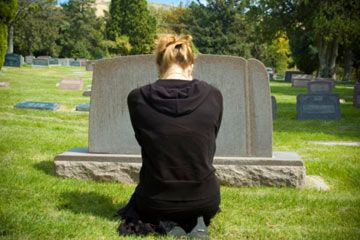For most people experiencing odd medical symptoms that don't seem to go together, getting a diagnosis is a relief. Finally, the puzzle pieces create a whole that looks familiar, at least to a doctor.
But a diagnosis containing the word "atypical" might leave you a little uneasy. You finally have an answer -- and the problem is that you're abnormal? How very helpful.
Advertisement
In the case of atypical depression, that's a little misleading. Atypical depression doesn't translate to "depression for weirdos" -- it's a very specific subset of the mental health disorder, with careful criteria for diagnosis. All "atypical" means here is that some of its symptoms are the opposite of what doctors had come to expect with depression.
Melancholic depression is what most people mean when they talk about being depressed. You can't sleep, you can't eat. You can't concentrate on anything. And nothing seems to bring you out of it. Things that used to make you smile leave you feeling empty.
With atypical depression, some of those symptoms are reversed. Patients oversleep (hypersomnia), overeat (hyperphagy) and exhibit mood reactivity -- they're able to brighten up in response to happy news; it just doesn't last long. Because of that latter quality, they may not even know they're depressed. They may think that their baseline of depression is just how everyone feels.
They do know, however, that feeling like your limbs are so incredibly heavy that you can't move is not normal. This symptom, leaden paralysis, is different from a lack of energy -- it's more like being physically anchored to your bed. With actual metal anchors.
Atypical depression tends to set in fairly early, in the teens and young adulthood, and it's more common in women.
It also tends to keep unwanted company. People with atypical depression are more likely to have anxiety, personality and somatization disorder (physical symptoms with no physical cause) than those with other types of depression. They're also more likely to have problems with substance abuse.
The first step to finding the right treatment is getting the right diagnosis. So how do you know for sure if this is the accurate label for you or a loved one?
Advertisement

